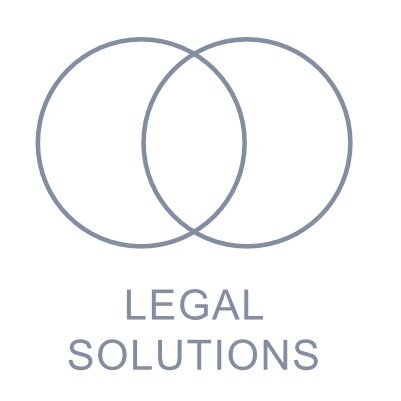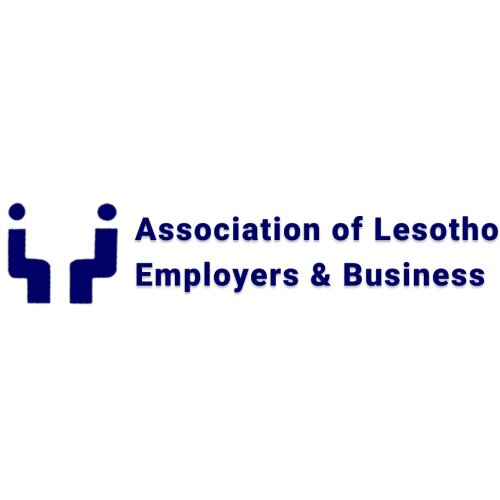Best Renewable & Alternative Energy Lawyers in Maseru
Share your needs with us, get contacted by law firms.
Free. Takes 2 min.
List of the best lawyers in Maseru, Lesotho
About Renewable & Alternative Energy Law in Maseru, Lesotho
Renewable and alternative energy law in Maseru, Lesotho is a developing field driven by the rising demand for cleaner and more sustainable power sources. Lesotho, known for its mountainous terrain and water resources, has significant potential for hydropower, solar, and wind energy. The government has introduced several initiatives to diversify energy sources to ensure energy security, promote environmental sustainability, and stimulate economic development. Legal frameworks exist to govern how energy is sourced, generated, distributed, and consumed, with an increasing focus on reducing reliance on imported electricity and fossil fuels. Regulatory oversight primarily falls under the Lesotho Electricity Authority and the Ministry of Energy and Meteorology.
Why You May Need a Lawyer
A lawyer specialized in renewable and alternative energy can offer critical assistance in several scenarios. Common situations include negotiating power purchase agreements, navigating licensing and permit processes, ensuring compliance with environmental regulations, and resolving disputes between energy providers or between providers and consumers. If you are developing, investing in, or operating a renewable energy project, securing land or water use rights, or dealing with government tenders, a lawyer’s guidance is essential to avoid costly mistakes and ensure your interests are protected. For consumers or communities seeking to challenge energy project impacts, legal advice is also crucial for understanding rights and recourse.
Local Laws Overview
The legal landscape governing renewable and alternative energy in Maseru is shaped by national policies, specific acts, and regulatory authorities. Some key aspects include:
- Energy Act of 2008 - Provides the framework for electricity generation, licensing, distribution, and regulatory oversight.
- Renewable Energy Policy - Outlines goals for increasing renewable energy adoption and sets targets for integrating solar, wind, and hydropower within Lesotho’s energy mix.
- Environmental Impact Assessment (EIA) Regulations - Require energy projects to undergo environmental review and obtain clearance before operations commence.
- Land Act - Governs land use rights, which must be secured for renewable energy installations.
- Lesotho Electricity Authority (LEA) Regulations - These regulate tariffs, grid access, safety standards, and consumer protection.
- Import and Export Laws - Address cross-border electricity trade, especially relevant for hydropower projects.
The combination of these laws ensures that energy projects are safe, environmentally sound, and economically viable, while protecting both investors and the wider public.
Frequently Asked Questions
What types of renewable energy projects are common in Maseru?
Hydropower, solar photovoltaic systems, and to a lesser extent, wind energy projects are common in Maseru and across Lesotho due to abundant natural resources.
Do I need a license to set up a renewable energy facility?
Yes, you must obtain a license from the Lesotho Electricity Authority before constructing and operating most renewable energy generation facilities.
Are there governmental incentives for renewable energy investments?
The government offers certain incentives, such as tax breaks or reduced duties for importing renewable energy equipment, but they vary depending on project size and type.
How are tariffs for renewable energy determined?
Tariffs are regulated and approved by the Lesotho Electricity Authority to balance fair returns for investors with affordable prices for consumers.
Do renewable energy projects need environmental approval?
Yes, most projects require a mandatory Environmental Impact Assessment and approval from environmental authorities before proceeding.
What are the typical challenges faced by renewable energy developers?
These include securing land rights, navigating regulatory requirements, obtaining financing, and connecting to the national electricity grid.
Can communities initiate their own renewable energy projects?
Yes, communities can initiate small-scale projects but must comply with licensing and environmental regulations.
What legal protections exist for consumers in the renewable energy sector?
Consumer rights are protected by tariff regulations, standard service agreements, and consumer protection laws overseen by the Lesotho Electricity Authority.
Is foreign investment allowed in Lesotho’s energy sector?
Yes, foreign investors are encouraged, particularly in renewable energy. However, they must adhere to national regulations and may require joint ventures with local entities.
Where can I find official documentation or get more advice?
Official documentation can be requested from government bodies like the Lesotho Electricity Authority or the Ministry of Energy and Meteorology. Legal professionals can assist you in interpreting these documents.
Additional Resources
If you are seeking more information or legal assistance, consider the following resources and bodies related to renewable and alternative energy in Maseru:
- Lesotho Electricity Authority
- Ministry of Energy and Meteorology
- Department of Environment (for EIA processes)
- Lesotho Renewable Energy Association
- Legal Aid offices specializing in commercial and energy law
- Academic institutions, such as the National University of Lesotho, for research support
- Chambers of commerce and investment promotion agencies
Next Steps
If you need legal assistance with renewable or alternative energy matters in Maseru, start by gathering as much relevant documentation as possible, including project proposals, land agreements, and correspondence with authorities. Identify your specific objectives, such as obtaining permits, resolving disputes, or negotiating contracts. Then, contact a lawyer experienced in energy law or a legal aid office for an initial consultation. Prepare a list of questions and ensure you understand the fee arrangements before proceeding. Engaging a legal professional early can save time and resources, and provide clarity on complex, evolving regulations in Lesotho’s renewable and alternative energy sector.
Lawzana helps you find the best lawyers and law firms in Maseru through a curated and pre-screened list of qualified legal professionals. Our platform offers rankings and detailed profiles of attorneys and law firms, allowing you to compare based on practice areas, including Renewable & Alternative Energy, experience, and client feedback.
Each profile includes a description of the firm's areas of practice, client reviews, team members and partners, year of establishment, spoken languages, office locations, contact information, social media presence, and any published articles or resources. Most firms on our platform speak English and are experienced in both local and international legal matters.
Get a quote from top-rated law firms in Maseru, Lesotho — quickly, securely, and without unnecessary hassle.
Disclaimer:
The information provided on this page is for general informational purposes only and does not constitute legal advice. While we strive to ensure the accuracy and relevance of the content, legal information may change over time, and interpretations of the law can vary. You should always consult with a qualified legal professional for advice specific to your situation.
We disclaim all liability for actions taken or not taken based on the content of this page. If you believe any information is incorrect or outdated, please contact us, and we will review and update it where appropriate.












